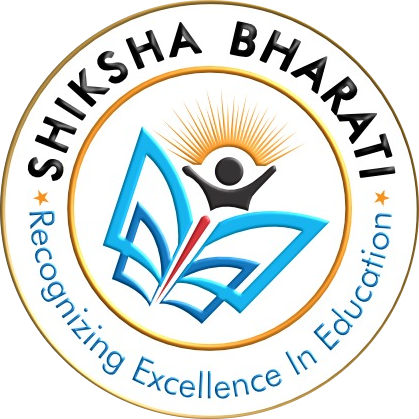
Foreword
The Indian education system is a dynamic and multi-faceted entity that plays a crucial role in shaping the country’s future. With its diverse structure, encompassing various boards and curricula it provides students with wide range of academic options. In NEP 2020, this shift from pure academics, competitive exams to skills and competencies is an evident welcome change. It also strives to impart knowledge rooted in India’s rich culture, values and traditions while preparing them to be future ready.
As India continues to evolve, its education system faces challenges in ensuring equal access and quality, yet it provides the opportunities for innovation, skill development and growth, ultimately aiming to achieve SDG 4 – ‘Quality Education’ and eventually helping to the close the gap between the privileged and the under-privileged.
Effective schooling and improving education structure calls for a comprehensive system of evaluation of diversified Indian schools against well-defined criteria. ‘Shiksha Bharati Survey and Awards,’ presented by CSR Times, in a major step towards comprehensive school evaluation, aims to recognize and honour schools, institutions, and educators working diligently to provide quality education to our highest population of young minds.
Endeavour
As once remarkably articulated by philosopher and social reformer, Savitribai Phule:
“Awaken, arise, and educate. Smash traditions, liberate minds, and transform society.”
The end goal for education is nation building. The more thoughtfully the education system is structured from an early age, the more it will nurture a generation of youth who are not only civilized citizens but also critical thinkers and empathetic individuals. The Indian education system needs to revamp itself to accommodate today’s evolving students, who seek inclusivity, innovative pedagogies, and holistic growth. In today’s time, education should no longer bind students into rigid courses and curricula, instead liberate students to pursue choice-based subjects and specialized courses from a young age, allowing them to suitably sketch their career paths. The brewing resolve among educationists and academic experts to establish a comprehensive framework that addresses the evolving cyber lifestyle of students and layer their learning needs with educational institutions’ models will smoothly conduct the transition from lecture-based teaching to students’ preferred learning approach.
Objective
With the coming of National Education Policy 2020 and its implementation being planned at all levels in the country, the shift in the pedagogical leadership and approaches are of immense significance. The focus now is on the holistic development of the learner, who is skilled and future ready. To lead, it is imperative that educators upgrade themselves with the latest and relevant methodologies and best practices. We at Shiksha Bharati are committed to support and engage schools to adopt student –centric learning approaches and effectively dovetail it into school curricula aiming to cultivate well-rounded individuals.
We work to identify the new pedagogical approaches adopted by schools, including:
- Social and Emotional Aspects of Learning
- Values-based education
- Interdisciplinary Approach
- STEAM Education (Science, Technology, Engineering, Arts, and Mathematics)
- Vocational Education
- Outcome-based Learning
- Digital and Blended Learning
- Sport-integrated Learning
- Art-integrated Learning
- Environmental and Sustainability Education
- Problem-solving and Decision-making Skills
Action Plan
CSR Times acts like a two-way bridge between a) educational organizations and authorities dedicated to delivering quality education and b) academic experts and leaders who strive to cultivate a holistic and enriching educational environment. Given that education is one of the most crucial investments parents make in their children’s future, making well-informed decisions about the right educational system becomes essential. This endeavor aims to
- Evaluate and rank schools according to the comprehensive guidelines outlined by the National Education Policy 2020.
- Provide an insightful comparison for parents to guide them into selecting the ideal school for their kids.
- Facilitate a friendly interschool comparison, empowering institutions to learn from one another and raise their standards.
- Champion holistic education, focusing not only on academic excellence but also on personal growth, creativity, and emotional well-being.
- Highlight areas for improvement, encouraging schools to continuously innovate and evolve to meet the needs of today’s learners.
- Offer an informative platform for everything one needs to know about education in the contemporary world – latest trends, insights, and resources for the young learners.
